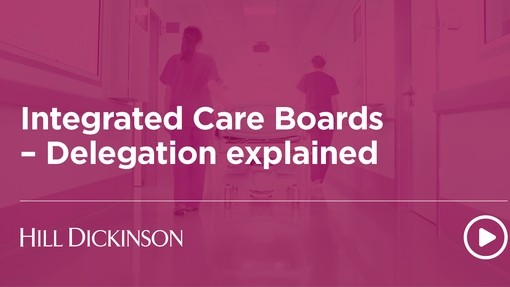Useful judicial guidance on the application of Regulation 72

Useful judicial guidance on the application of Regulation 72
Background
On 19 May 2023, the High Court handed down judgement in a case concerning Regulation 72 of the Public Contracts Regulations 2015 (PCR).
Regulation 72 deals with making modifications to procured contracts during their term, and more specifically deals with:
- when such modifications are to be regarded as ‘substantial’ i.e. impermissible and requiring a new procurement process to be undertaken; and
- the circumstances in which a modification is permitted without a new process being required as set out in Regulation to 72(1)(a) – (f), referred to the judgement as ‘gateways’.
In James Waste Management LLP v Essex County Council [2023], a claim was brought by James Waste Management LLP (JWM) against Essex County Council (the Council) in relation to modifications that the Council made in 2021 to a contract for integrated waste handling with Veolia ES (UK) Ltd that it had awarded back in 2013 (Veolia Contract). The relevant facts of the case were complex, but the claim made by JWM was that the modifications to the Veolia Contract were substantial and therefore unlawful.
Decision
The Court rejected all of JWM’s claims, considering that the modification fell within the gateway in Regulation 72(1)(e) i.e. that the modification was not substantial within the meaning of Regulation 72(8).
In coming to its decision, the Court reasoned that, on the facts of this particular case:
- Nothing in the modification of the Veolia Contract rendered it materially different in character. In particular:
- it was still concerned with waste haulage, with no additional services, and the waste haulage was to be provided at many of the same sites;
- the contract contemplated that there might be additional sites added into the contract during its term (which was one of the reasons for the modification);
- the modified terms were a short-term contingency measure only, applying for a short period only and also applying for a very small period relative to the contract as a whole; and
- the modification was also of very low value, especially compared to the value of the Veolia Contract over the whole of its term.
- Nothing in the modification considerably extended the scope of the Veolia Contract for many of the same reasons that it did not render it materially different in character.
- There was nothing to suggest that, on the balance of probabilities, there was a real prospect that another bidder could have won had the conditions of the modification been included in the initial procurement procedure.
- Although the fees payable as a result of the variation were structured differently to the fixed fee pricing agreed at the outset of the Veolia Contract, the new fees offered a similar economic balance and, as a result, the economic balance was not shifted in favour of the contractor.
Given the finding that the modification was not substantial, the Court did not need to consider further grounds under Regulation 72(1) and the alternative argument raised by the Council that it was entitled to rely on the gateway under Regulation 72(1)(a) i.e. that the change was provided for in the initial procurement documents in a clear, precise and unequivocal review clause. Nevertheless, the Court noted that this ground was not available because the modification procedure provided for had not been followed when making the modification.
Why is this decision important?
The decision is essential reading for procurement practitioners wanting to understand how the gateways under Regulation 72 operate. There are relatively few domestic cases on the application of Regulation 72, so this is helpful. As part of the judgement, there were a number of useful principles laid out including the following:
- The gateways should be interpreted narrowly because they are derogations from the general rule that a new procurement is required for a modification of a public contract during its term;
- An authority defending a modification does not have to discharge a burden of proof regarding its reliance on a gateway i.e. it does not have to show that a modification falls within Regulation 72(1).
- In deciding whether there is a ‘considerable’ extension of scope to the contract, Regulation 72(8) should be interpreted in a common-sense way. Specifically, the Court rejected the argument advanced by JWM that any extension above the relevant thresholds in Regulation 5 would be substantial, notwithstanding the relative value of the original contract.
- When assessing whether another bidder could have won, had the modified terms been included in the original procurement process, the Court held that the appropriate test is whether there is a ‘real’ rather than ‘fanciful’ prospect that an alternative tender could have done so; a claimant does not need to show that an alternative bidder would have won.
- When assessing whether the economic balance of the contract is changed in favour of the supplier, the Court held that the test to be applied is whether the payment amounts to ‘reasonable compensation’ and if it is, there will be no change irrespective of whether the payment mechanism has itself changed.
The consideration of Regulation of 72(1)(a) underscores the importance of following the proper contractual mechanisms for effecting variations that a contracting authority considers fall within the scope of any review clause. Not doing so potentially jeopardises safe reliance on that gateway.
Of course, the rules on modification of contracts will change following the enactment of the Procurement Bill currently progressing through its parliamentary journey. Modification cases like this one are rare but the new bill increases transparency requirements where such changes are made, including the publication of new notices alerting the marketplace and mandating the observance of a new standstill period before they can be implemented. There may therefore be many more cases relating to modifications in future.
If you would like to discuss this topic further, please get in touch with us at Hill Dickinson LLP.






